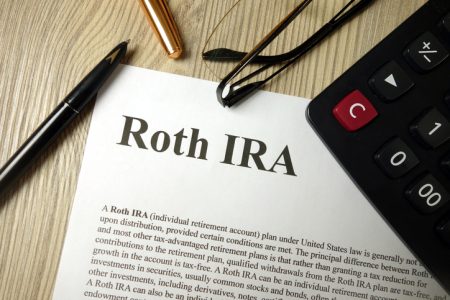Planning for retirement can feel overwhelming, but fortunately, there are several savings tools available to help take the sting out of the process. By utilizing these tools, you can create a financial strategy that helps you save for retirement. Two common options are deferred compensation plans and 401(k)s. While both can help you defer taxes and build long-term wealth, they work in very different ways. Understanding the key differences between a deferred compensation plan vs. 401(k) can help you make informed choices about where to invest your money and how to maximize your retirement savings.
Ask a financial advisor how to structure your retirement accounts so you can minimize tax liability and grow your earnings faster.
What Is a Deferred Compensation Plan?
The main appeal of a deferred compensation plan is tax deferral. By postponing part of your income, you may lower your current taxable income, and the money you save can grow tax-deferred until distributed. The idea is that when you receive those funds later — often when you have retired — you may be in a lower tax bracket, which could reduce your overall tax burden.
However, deferred compensation plans come with unique risks. Unlike a 401(k), the money you defer is technically still part of your employer’s assets until you receive your payout. That means if your company faces financial trouble or goes bankrupt, your deferred compensation could be at risk.
Because of this, it is important to carefully weigh tax deferral benefits against the risk of your future income being dependent on your employer’s financial health.
Differences of a Deferred Compensation Plan and a 401(k)
A 401(k) has strict tax limits and rules set by the IRS, whereas a deferred compensation plan allows you to defer much larger amounts of income. This can make deferred compensation plans more attractive to high-income earners who have already maxed out their 401(k).
However, the trade-off is risk. The money in a deferred compensation plan technically belongs to your employer until distributed. That means if the company faces financial difficulties, you could lose your funds.
Another distinction lies in withdrawal rules. With a 401(k), you generally cannot access funds before age 59½ without incurring penalties, and you must take required minimum distributions (RMDs) in retirement.
Deferred compensation plans, on the other hand, allow you to schedule distributions in advance, sometimes even before retirement. This offers more flexibility in timing your income and managing taxes.
Eligibility is also a concern. A 401(k) is widely available to employees across industries, often with employer matching contributions as a benefit. Deferred compensation plans, however, are typically reserved for executives and highly compensated employees. It can serve as both a tax planning tool and a retention incentive.
Why Executives Choose a Deferred Compensation Plan Over a 401(k)

While this creates a strong foundation for retirement savings, it may not be enough for someone with a significantly higher income who wants to save aggressively. A deferred compensation plan allows you to save much more – sometimes hundreds of thousands of dollars annually – without needing to abide by those contribution caps.
Another reason executives lean toward deferred compensation plans is the flexibility they provide. With a 401(k), withdrawals typically begin at retirement age and are subject to required minimum distribution (RMD) rules. However, a deferred compensation plan allows participants to schedule payouts on their own terms. This could mean receiving funds after retirement or spreading them out over several years to manage tax liability. You may also time payouts to coincide with other financial goals.
In many cases, companies design these plans to retain top talent. By tying a portion of an executive’s compensation to long-term performance or continued employment, employers create an incentive for executives to stay. For the employee, the trade-off is clear: greater potential for tax deferral and higher retirement savings. However, at the end of the day, these funds are only as secure as the employer’s financial stability.
Alternative Retirement Plans to Consider
When comparing deferred compensation plans vs. 401(k)s and other retirement options, consider your employment situation, tax bracket and long-term financial goals. The ideal retirement strategy often involves a combination of different plans to maximize tax advantages and create a sustainable income stream for your golden years.
Bottom Line

Both deferred compensation plans and 401(k)s can play important roles in retirement planning, but they serve different needs. A 401(k) offers broad access, strict IRS protections and steady tax-deferred growth. Meanwhile, a deferred compensation plan allows high earners to save more and customize payout timing. However, funds are dependent on the employer’s financial health. Understanding these differences can help you determine which plan, or both, aligns with your long-term financial goals.
Tips for Retirement Planning
- When planning for retirement, it’s important to have an expert who can help you save the right amount of money and then help manage your investments to reach the right long-term goals. This is where a financial advisor comes in, who has the expertise to help your portfolio grow over time. Finding a financial advisor doesn’t have to be hard. SmartAsset’s free tool matches you with vetted financial advisors who serve your area, and you can have a free introductory call with your advisor matches to decide which one you feel is right for you. If you’re ready to find an advisor who can help you achieve your financial goals, get started now.
- Consider utilizing a retirement calculator to help you better understand what you should be saving now for you to reach your long-term goals.
Photo credit: ©iStock.com/AndreyPopov, ©iStock.com/David Gyung, ©iStock.com/g-stockstudio
Read the full article here












